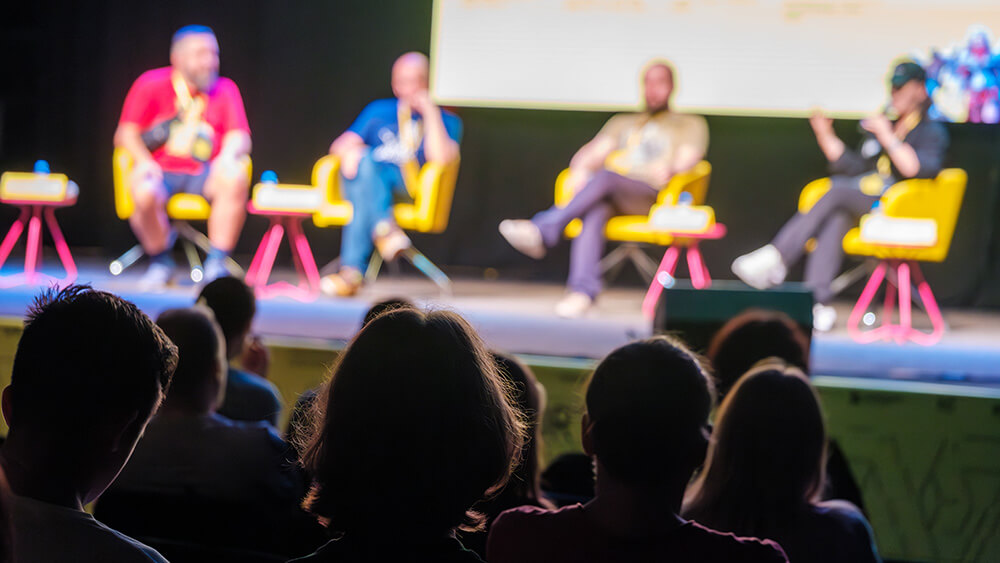
The panel survey questions are designed for planners who organize — as well as those who attend — panel discussions, in addition to moderators and panelists.
In 2013, professional meeting facilitator Kristin Arnold decided to devote her full attention to the art of moderating panel discussions. As she recounts on her website, she had “just watched two extremely boring back-to-back panels in the morning at a very high-level meeting,” which she was attending because she was facilitating a roundtable discussion that afternoon. Arnold wanted to explore how to radically improve the popular session format.
In 2014, she conducted a research study on panels, and now, a decade later, she is launching a new survey about the state of panel discussions at meetings, conferences, and conventions, in partnership with corporate event company Unbridled.
Arnold is looking to test some of her assumptions about how panel sessions have evolved over the past 10 years against survey participants’ responses. The questions are designed for planners who organize — as well as those who attend — panel discussions, in addition to moderators and panelists. The first question in the 10-minute survey asks participants to answer the survey from their main perspective. Please participate at panelsreport.com/survey/. The survey will close April 30.
Here is what she thinks the survey results will tell us.
- Panel discussions aren’t going away. They are still a dominant format, especially in the virtual world.
- Panels don’t have a great reputation because they haven’t improved much. In 2014, 63 percent of survey respondents thought panels were merely okay or worse. I don’t think that needle has moved much — in perception and actual practice.
- Traditional panels are a lazy format with very little time spent in their planning or design. Exceptional panels are the result of intentional design, planning, and preparation — and having an expert panel moderator. Having a poor moderator was respondents’ biggest pet peeve in 2014 with out-of-control panelists following close behind. I don’t think this will change in 2024. So why aren’t we as an industry more thoughtful about selecting skilled moderators?
- Audience engagement is important to audience members. The panel discussion should not be a passive experience. Audiences want to be involved in the selection of the topic, the formation of the questions, engaged in the session itself (beyond audience Q&A), and in continuing the conversation after the panel is over.
- Diversity is increasingly more important. I can’t say that the manel days are over, but I believe the importance of diversity and inclusion is on the event organizer’s radar — and is glaringly apparent to the audience.
Convene will publish the results of the study. Please participate by April 30 — and stay tuned for fresh insights from your peers.
